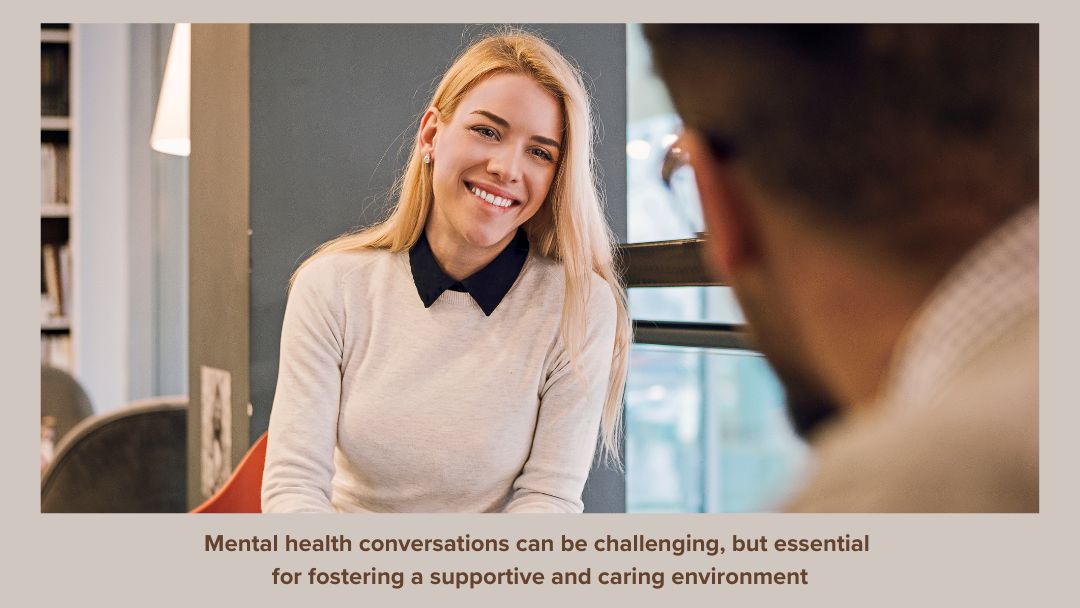Having a mental health conversation can be challenging, but it is essential for fostering a supportive and caring environment. By following a few tips and strategies, you can help create a safe and healthy space for discussing mental health and supporting those in need. Remember, you are not alone in this journey – reach out for support whenever you need it.
Nicola Ball, counsellor for The Talking Rooms, said: “As a provider of counselling support to staff within NHS Lanarkshire, I understand the importance of having safe and healthy conversations about mental health. These conversations can be challenging, but they are essential in promoting well-being and seeking support when needed”.
Tips and Strategies
Create a safe and comfortable environment: Find a quiet and private space where you can have an open and honest conversation without interruptions. Make sure the person you are talking to feels comfortable and supported.
Example: Instead of having a conversation in a busy office setting, suggest going for a walk in a nearby park to create a more relaxed and informal atmosphere.
Listen actively and non-judgmentally: Show empathy and understanding by actively listening to the person’s concerns without making assumptions or offering unsolicited advice. Let them know that you are there to support them without judgement.
Example: When a person opens up about feeling overwhelmed at work, listen attentively and ask open-ended questions to encourage them to share more about their experiences.
Be mindful of your language and tone: Use language that is non-stigmatising and respectful when talking about mental health. Avoid using dismissive or invalidating language that may further exacerbate the person’s feelings.
Example: Instead of saying “You’re being irrational” try saying “I hear that you’re feeling anxious. Can you tell me more about what’s been on your mind?”
Offer support and resources: Let the person know that they are not alone and that resources and support are available to help them manage their mental health. Encourage them to seek professional help if needed and provide information on where they can access support.
Example: If the person expresses feelings of depression, offer to help them research therapists in their area or provide information on mental health hotlines they can call for immediate support.
Follow up and check in: After the conversation, follow up with the person to see how they are doing and offer continued support. Let them know that you are there for them whenever they need to talk.
Example: Send a text message a few days after your conversation to check in and ask how they are feeling. Reassure them that you are there to support them through their mental health journey.
The Talking Rooms provide a free, confidential counselling service to support the mental health and wellbeing of staff and is open Monday to Friday, 9am to 5pm. To contact the service, please telephone 0800 138 9150. Alternatively, you can self-refer at: www.thetalkingrooms.com/refer
The counselling service is completely confidential and no personal information will be shared with line managers or the organisation.



